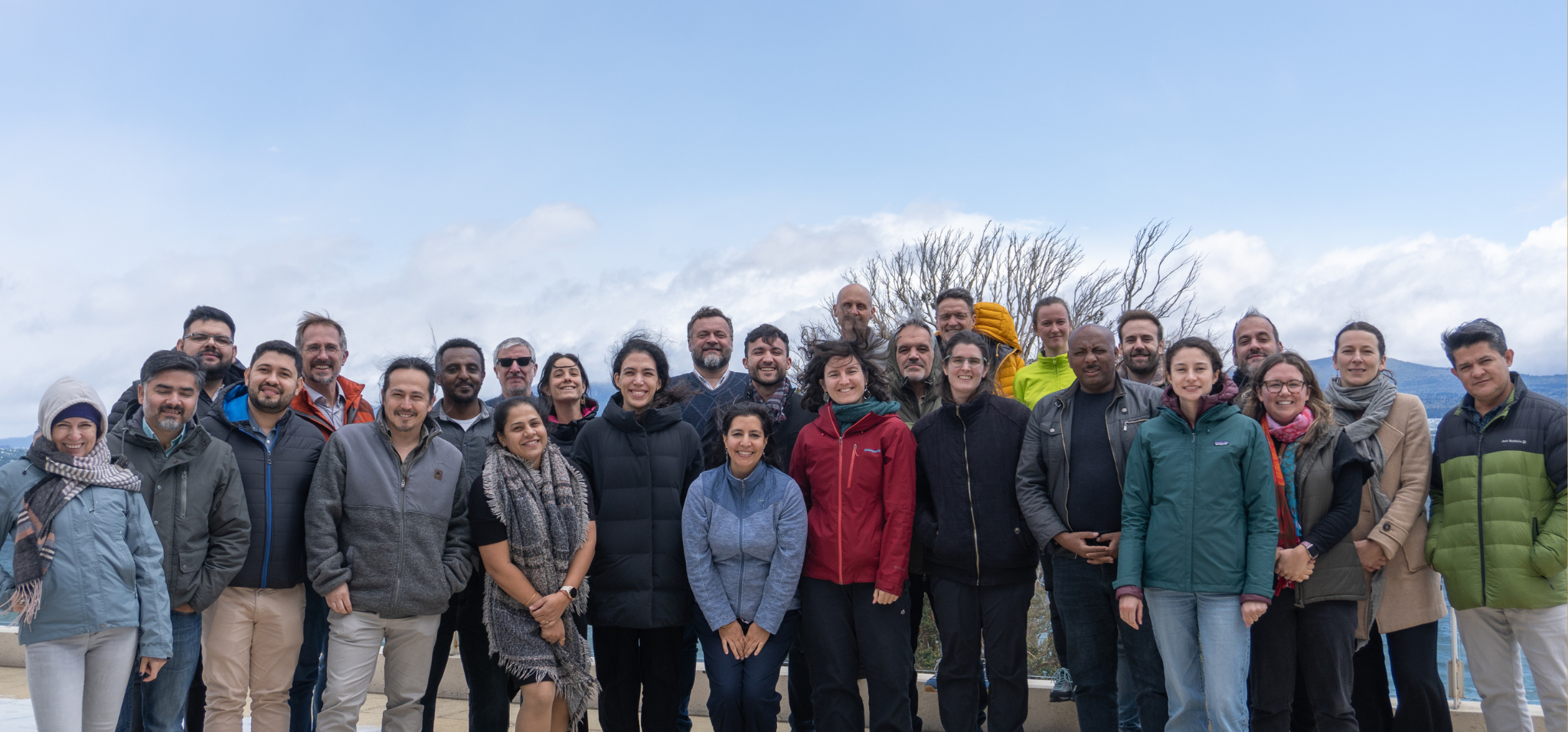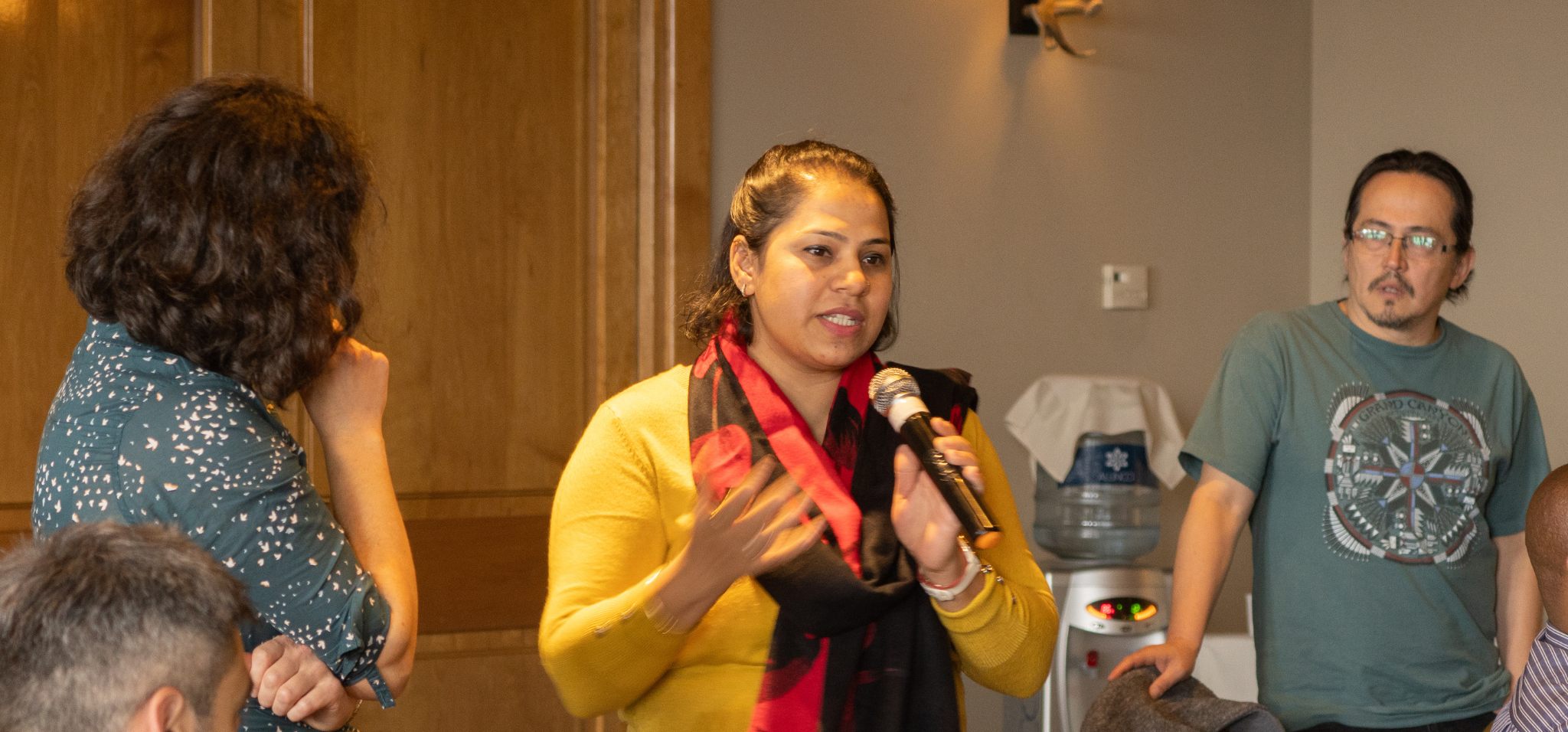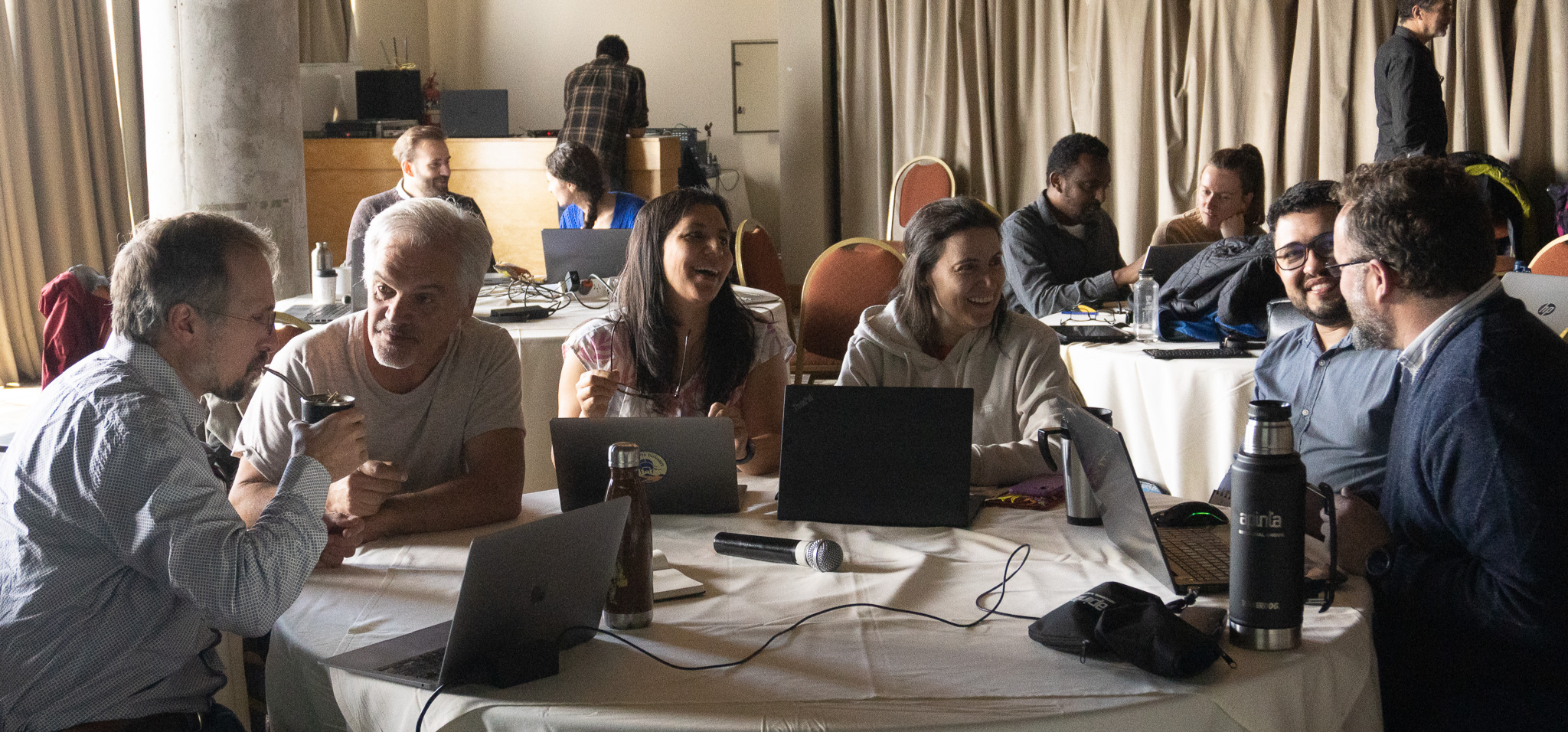 Photo courtesy of Ailin Caceres, Fundacion Bariloche.
Photo courtesy of Ailin Caceres, Fundacion Bariloche.
Author: Maria Diaz, SDSN.
The FABLE Consortium held its annual meeting, gathering over 80 in-person and virtual participants from more than 20 countries in Bariloche, with teams from Argentina, Canada, Brazil, Ethiopia, Greece, India, Mexico, Nepal, and the UK, attending in person. The meeting offered an opportunity for scientists and policy experts to exchange knowledge around solutions for the most pressing challenges faced by food and land-use systems at a local and global scale.
The three-day meeting aimed at:
• Fostering knowledge exchange about the role that the Agriculture, Forestry, and Other Land Use (AFOLU) sector can play in achieving global and national climate mitigation targets;
• Tackling interconnected challenges in food and land use (climate change, biodiversity loss, food insecurity, unhealthy diets) through the development of long-term integrated pathways;
• Planning the future of FABLE, by identifying future priorities for the consortium's science-policy outreach, model developments, fundraising efforts, and network consolidation and expansion;
• Gaining a better understanding of the challenges and opportunities to transform food and land systems in Argentina.
Strengthening consistency in global climate action
Currently, 68 countries have crafted Long-Term Low-Emission Development Strategies (LT-LEDS), but challenges persist. During the meeting, Sarah Achaichia from the 2050 Pathways Platform offered a global overview of the challenges facing the AFOLU sector in long-term climate strategies. "While most LT-LEDS focus on emission mitigation, there's a need to broaden efforts in AFOLU." Insights from 2050 Pathways were followed by interventions from FABLE members from Argentina, Colombia, and Brazil, who shared their experiences in collaborating with governments, using modelled scenarios to shape climate targets. These experiences shed light on ways to empower local scientists to collaborate closely with governments, and communicate their findings to policy audiences.
Increasing stakeholder engagement and driving policy action
FABLE focuses on creating decision-support tools that offer evidence-based insights for policymaking. In this process, stakeholder engagement is crucial. As such, the group delved into the lessons learned from FABLE's stakeholder engagement over the past years. Country teams explored avenues for increasing their policy impact, by identifying entry points to inform national policy processes, linked to the Paris Agreement, Kunming Montreal CBD Goals, UNFSS Pathways, and others. As FABLE nears the conclusion of its latest Scenathon, these insights are crucial for shaping the next steps to leverage the teams’ results and inform upcoming policy processes.
 Photo courtesy of Ailin Caceres, Fundacion Bariloche.
Photo courtesy of Ailin Caceres, Fundacion Bariloche.
Scenathon 2023: Did we meet our global targets?
As part of the Scenathon 2023, 22 FABLE teams developed three alternative pathways for their food and land-use systems. These pathways are grounded in scenarios reflecting the latest in global pledges, national policies and local trends. A preliminary analysis presented at the meeting revealed a considerable gap in meeting global sustainability goals, and that more effort is needed to meet the FABLE's global targets. FABLE teams from Brazil, Ethiopia and Greece led interactive discussions, sharing their methods to translate policies into quantitative scenarios, and to bridge data gaps.
Despite progress, questions lingered about the feasibility of implementing certain national commitments due to inconsistencies among sectoral targets and ambiguities in the terminology in some of these pledges. These uncertainties, which can bear significant implications for the future sustainability of food and land-use systems, will be addressed by the FABLE Consortium in the coming years.
Assessing fairness in the achievement of global targets
Fairness is central when we talk about the transition of food and land-use systems. In order to meet the global targets, all countries need to make an effort, but in global negotiations, the question about how much more effort each country should or is able to do still takes center stage. As these discussions become more relevant among international financial institutions, and global climate fora, FABLE is exploring methods to tackle the fairness question within the food and land-use sector.
During the meeting, FABLE members delved into different methodologies to compare fair share allowances for GHG emissions from the AFOLU sector across countries. By testing different indicators (i.e., historical responsibility, ability to pay, constant emissions rate, among others), participants tried to anticipate the reactions from stakeholders and which ones could be more relevant for their country context. Going forward, FABLE will incorporate different fair share methodologies into future Scenathons, to spark a necessary dialogue among stakeholders on equity and each country's role in the transition.
 Photo courtesy of Ailin Caceres, Fundacion Bariloche.
Photo courtesy of Ailin Caceres, Fundacion Bariloche.
Exploring leading initiatives making software, data, and models open access.
The meeting underscored the transformative potential of open science, a core principle of the FABLE Consortium. The meeting included prominent scientists, such as Justin Johnson from University of Minnesota, who presented The NatureCapital project, and the InVEST tool, a suite of free, open-source software models used to map and value the goods and services from nature. The meeting also featured Gilberto Camara, from Brazil's National Institute for Space Research (INPE), who presented the gains achieved in the fight against deforestation in Brazil through the accesibility of deforestation data.
Designing the food and land-use systems of tomorrow: how FABLE is improving its modelling tools.
The meeting offered members an opportunity to share progress at improving tools to model food and land use systems. These developments include the generation of spatially explicit land-use pathways that can illustrate the synergies and trade-offs between different actions through maps. Another development was the forestry module to the FABLE Calculator, that accounts on forest degradation, wildfires, other natural disturbances.
Unlocking the complexities of international trade is crucial for ensuring global consistency in agricultural trade between national pathways. FABLE is seeking ways to enhance its trade analysis. For this discussion, FABLE invited Jasper Vershuur, Oxford University, to present his work on connecting a global transportation model with a partial equilibrium model to compute bilateral trade. His insights served FABLE members to brainstorm on ways in which they can calculate bilateral trade flows to incorporate consumption-based footprints, explore shock scenarios and include trade costs in the FABLE model to test pathway resilience.
The convening of the 13th FABLE Consortium meeting was made possible through the support of the IKI Climate Initiative and Norway's International Climate and Forest Initiative (NICFI).